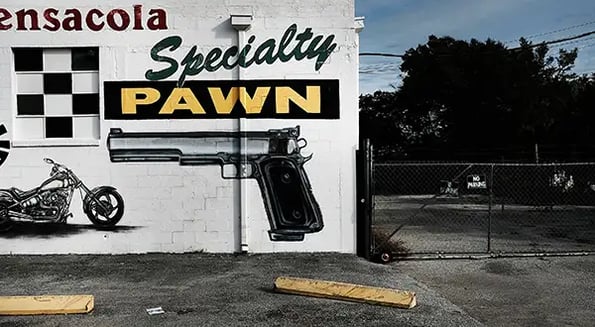Photo by Spencer Platt/Getty Images

For a gold ring ring that costs $300 at a jewelry store, a typical pawn shop would pay about $30.
But, as a recent report from The New York Times shows, deals that may seem like rip-offs can actually be really helpful to customers.
Pawn shops make money issuing loans, not selling grandma’s pearls
Although pawn shops are sometimes stereotyped as shady businesses that profit off of others peoples’ poverty, pawn brokerages are also an important alternative credit market.
Here’s how pawn shops are supposed to work.
- Pawn shops DON’T buy valuables from desperate people to quickly resell them at a profit.
- Pawn shops DO issue loans to customers based on their items’ value, and hold them as collateral.
Then, pawn shops make money from interest they earn on those loans.
Customers actually still own the items they pawn
In New York, pawn shops can sell these pawned items only if their owners haven’t paid off their interest after 4 months.
Not all pawn brokers are the same — and not all of them have customers’ best interests in mind (interest on loans can be as high as 200%).
But GEM Pawnbrokers, a NYC chain, told the Times that 80% of its revenue comes from loans, not sales.
And pawn shops allow the unbanked to borrow money
Unlike traditional banks, which use credit as collateral, pawn shops will take anything as collateral — and therefore serve as de facto banks to people without credit.
